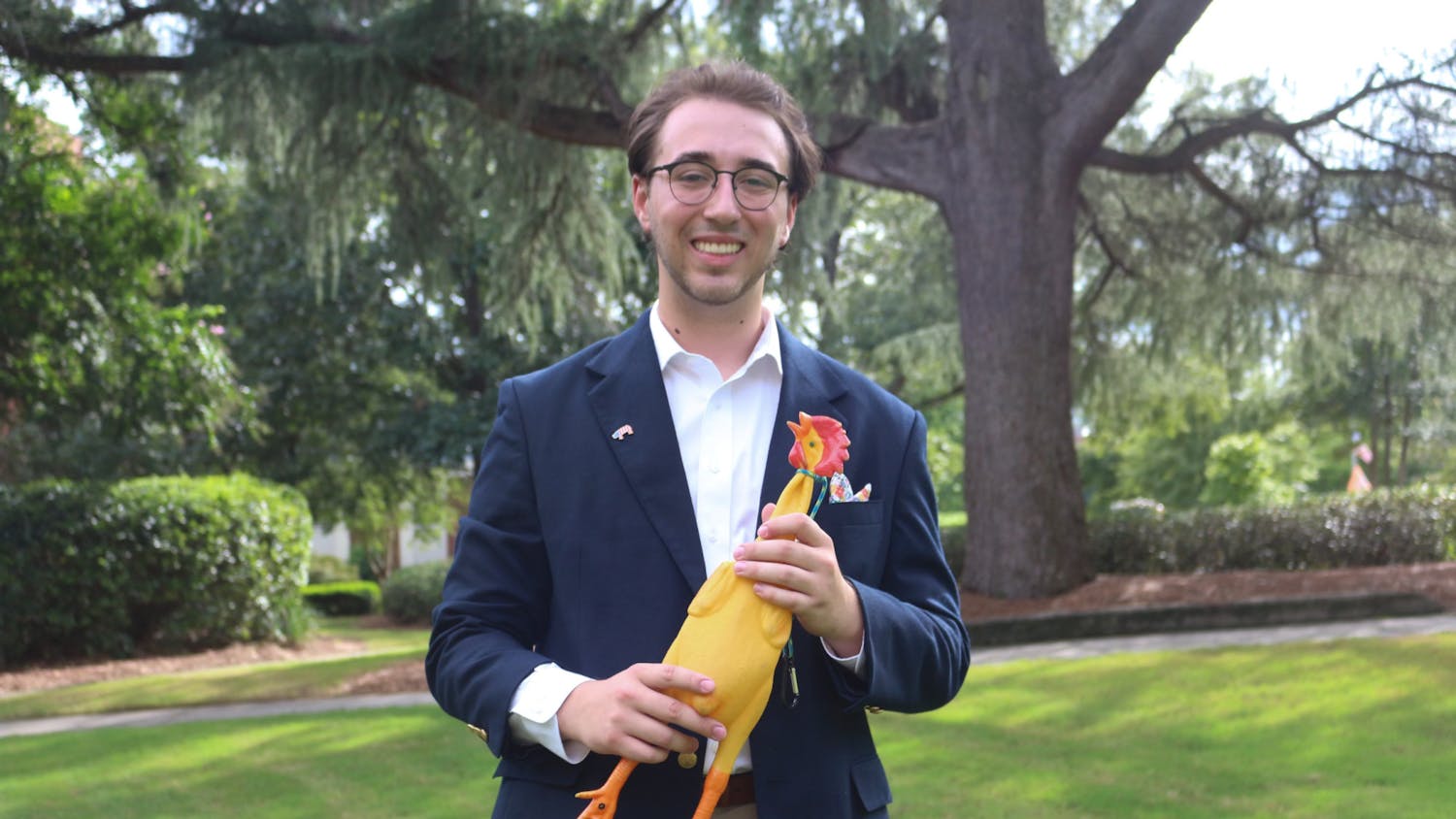The cold bitter weather of December surrounds Mercer’s campus. Dark clouds cover the sky to set a gloomy week for many students. Grade point averages and future careers can be decided in the upcoming days. Students can be found in Tarver Library where they prepare for the rigorous exams scheduled later in the week. It is crunch time. Students run to professors for help, coffee pots are brewing and eyes grow weary from reading. Scared and worried, I venture into Tarver’s library to find a place to study, yet I find no vacancies. At night, the same can be said for the supposed 24-hour room. The room in Tarver’s 24-hour room is scarce and it worries me that students won’t be able to study efficiently. To ensure everyone can study, the 24-hour room should be extended to the entire ground floor during finals week.
The 24-hour room consists of six study rooms, five tables, two couches and a mini lounge, which accommodates only about 30 students. The undergraduate population at Mercer as of Fall 2013 is about 4,400 and is growing rapidly. In fact, the class of 2017 is the largest class to enroll in Mercer’s history. The university is recognizing this problem as a whole with new Lofts under construction on College Street, but the lack of study space is alarming. The 24-hour rooms won’t be able to support everyone, especially during the busiest week of the semester, at its current state. An expansion will be needed in the upcoming years, but several issues confine the university from this extension.
After talking to the library’s faculty, their main concern of a 24-hour floor would be book security. After closing, the library is locked besides the 24-hour room and no one can enter the library. This ensures no one can steal books overnight and limits students to the 24-hour room. Book security is a main priority of the library but during finals week the door could be unlocked. A front desk could be installed downstairs, where a worker monitors the floor, the elevator can be turned off, a gate installed at the staircase and scanners placed at the exit of the 24-hour room to improve security. With these changes in place, security won’t be a stumbling block. However, funding such a proposal is a problem.
Tarver Library is an integral part of the university but isn’t given the budget of other schools on campus. The lack of funding confines the ground floor from expanding. The library spends majority of its money purchasing new books to add to its staggering collection. Without a major reconstruction of Tarver’s budget, an expansion is out of the question. However, the future looks rather bright for Tarver’s ground floor.
In an interview with the dean of libraries, Beth Hammond spoke about an eventual expansion of the 24-hour room and issues surrounding the proposal. Hammond voiced her concern over collection security of books and the financial struggle of expansion. The proposal included a 40 percent increase in space for the 24-hour room with the study rooms unscathed and intact. The back wall of the study rooms will be extended to the microfilm columns located on the ground floor for $50,000.
The conversation ended with Hammond and I discussing a potential coffee shop being constructed in Tarver. The coffee shop would be constructed near the lounge, where a series of broken desks and shelves waste away. No one can confirm nor deny that a coffee shop is being installed, but Hammond did say there were preliminary discussions with the company Aramark. Aramark would help fund the expansion and appease the $50,000 price tag. Students could easily drink good coffee late at night and study comfortably as well. The expansion of the 24-hour room seems to be heavily discussed among the library faculty and on the minds of the administration.
If the proposal goes through, students can worry about other things, such as the dispersion forces of octane and butane rather than asking where I am going to study tonight?




